Fish Tales: Trout farmer shares fish stories from generations on the river
Author
Published
9/3/2021
PARADISE – When you work in a community as aptly-named as Paradise, and spend your days along a beautiful, lazy river, is it really considered work? For Grant White and the folks behind Sportsman’s Paradise, the story of hard work and constant innovation is a fish story you can definitely believe!
Visits to the fishing lodge in south Cache Valley that sits alongside the Little Bear River are certainly breathtaking, but they don’t tell the complete story of how the pastoral getaway got this way. Many would be surprised to know that in the not-too-distant past, Grant White and his family were the 3rd largest private processor of fish in the country.
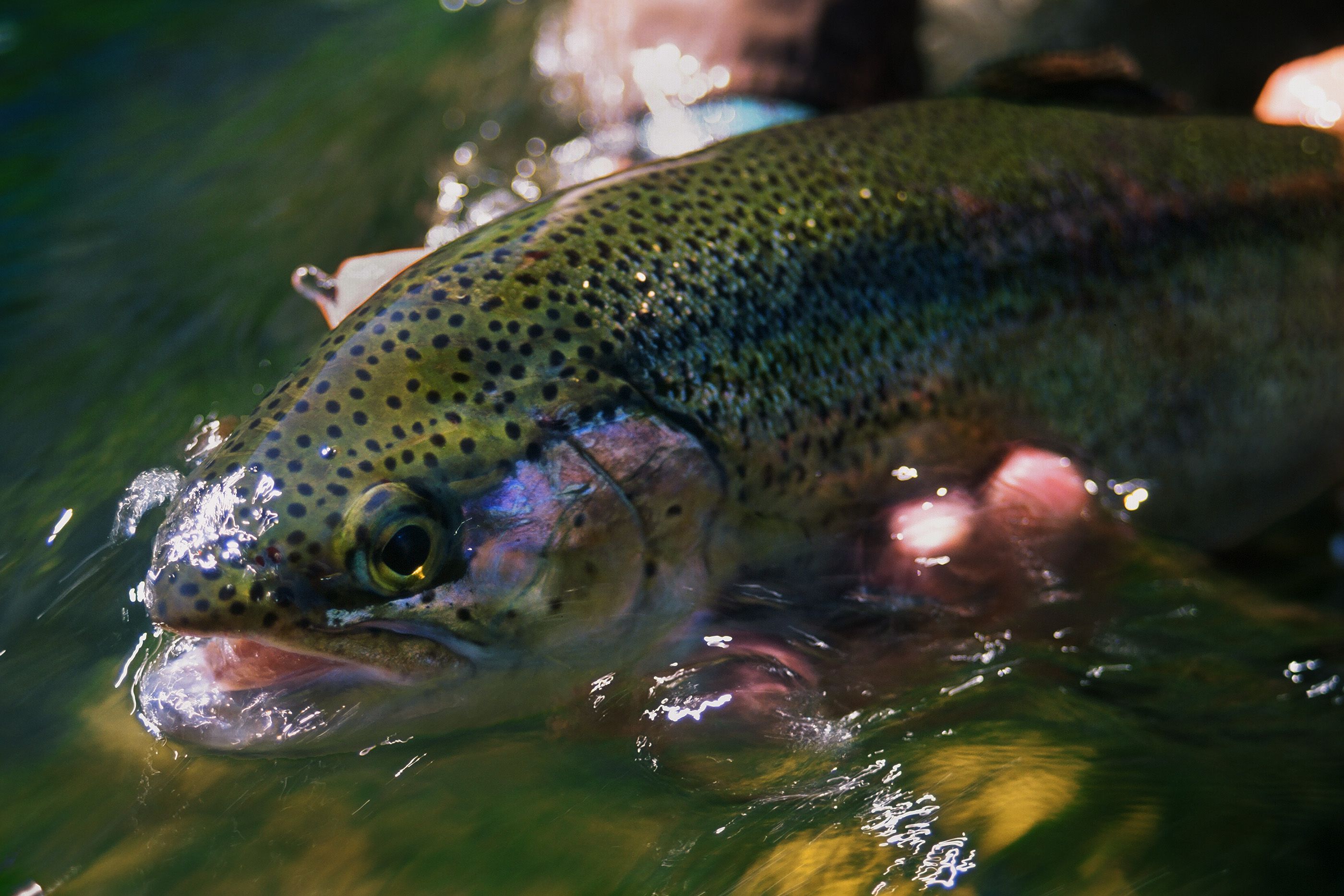
“We were selling about 7.5 million pounds of trout at one time. We sold straight to consumers, to wholesalers, to casinos and restaurants. We never had enough fish,” White said. “There’s just something of a mystique about Rocky Mountain trout. We would catch fish early in the morning, process it and take it down to Salt Lake City, put it on a flight to Atlanta, and they would be serving it that night at a restaurant.”
But as with many family businesses, it didn’t start a huge success from day one. Instead, it was the continuous improvement and sacrifice from generations’ previous that paved the way.
In the 1860s, Grant’s Great Grandfather, Barnard White, settled in the southern end of Cache Valley and raised sheep and cattle along the Little Bear River, along with a small family dairy. Eventually, Grant’s grandfather began taking fish caught in the river and sell them to the original Lamb’s Grill in Logan, and the business grew from there.
Additions came to the property, including the building of raceways (rectangular basins used for inland aquaculture) for the fish, as well as elsewhere on the farm, where the family would go on to raise turkeys and pigs, along with the existing animals. But it was the fish and cattle that the family focused on.
Having recently completed full-time service with the army in 1979, the family was growing the business and had been selling almost 1 million pounds of fish a year. After Grant bought the farm in 1983 with his father, they had increased production to 7.5 million pounds. Nothing it seemed could go wrong – until something Grant couldn’t even see threatened to dry up the business.
With contracts for hundreds of thousands of fish, the family received word in 1988 that whirling disease had been detected in waters that connected to theirs. This disease is caused by a microscopic parasite and is so named because once fish are infected by the parasite, they begin to swim erratically and have difficulty breathing. Other signs can include having a deformed tail and a twisted spine. Despite the disease proving fatal to approximately 90 percent of fish, the Utah Division of Wildlife Resources says the parasite does not infect people nor is there any risk to human health, even if someone were to eat a fish with the disease.
The diagnosis just about proved fatal to the White’s business as well. With disinfection of the waterways taking away the family’s fish, Grant decided to take the business in a new direction. They destroyed the hatchery and started converting the land and streams back to how they looked back in the 1800s, changing the model the business they had been working under.
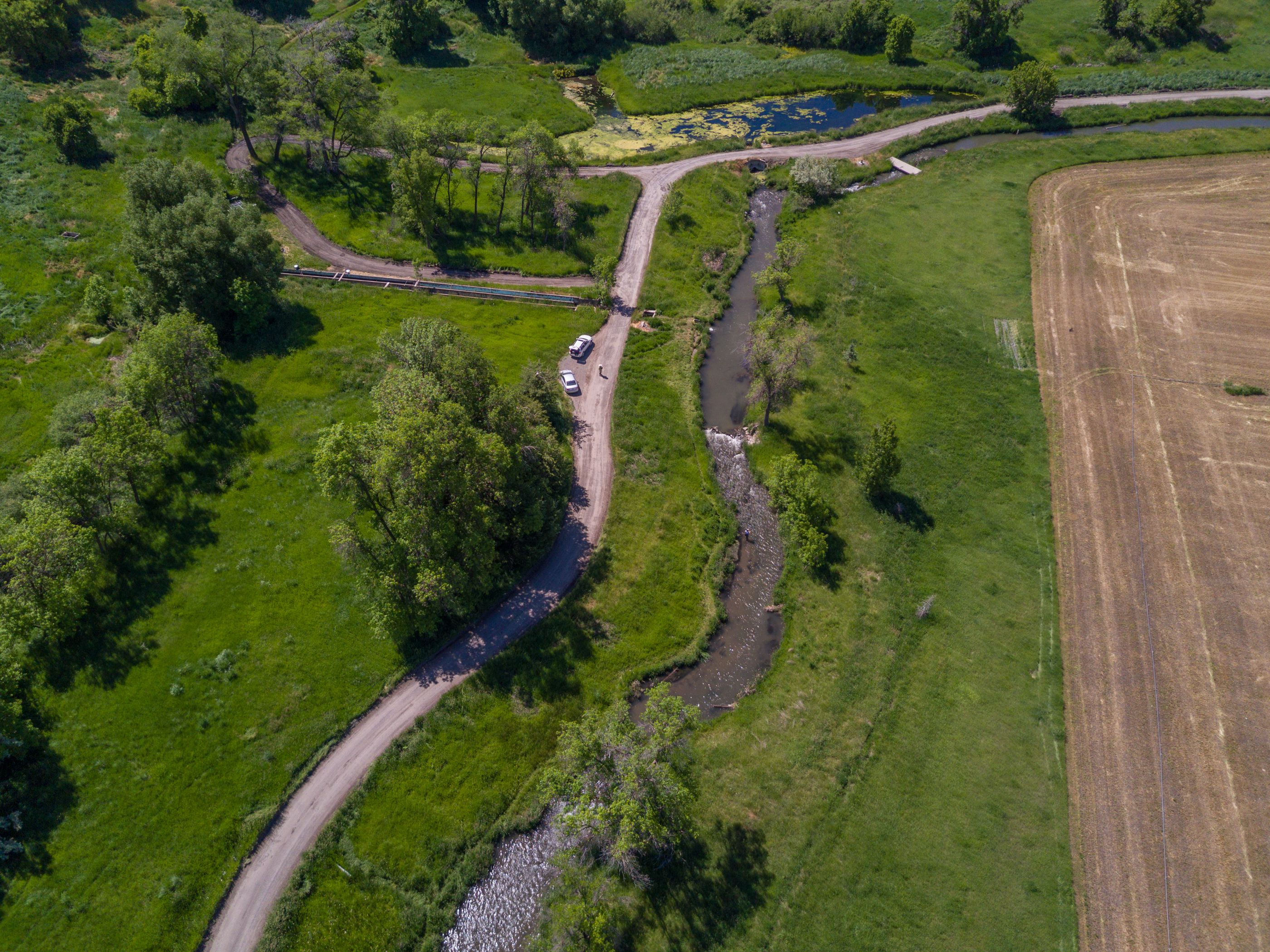
With a little convincing from some friends, Grant decided to move the family business from a commodity – selling fish wholesale – to a value-added product. They began to sell the experience, not just the fish.
Adding on pieces at a time as he could afford it, Grant White expanded on buildings on the property to make it more of a destination and fishing club. In 1997, they began selling memberships to the fishing club and the experience families were having was proof Grant was on the right track.
“Their experience was amazing,” Grant said. “People would come up here that worked in Salt Lake City, and leave rested and relaxed.”
White priced the memberships to cater to a variety of people, from personal memberships for $760, to family and corporate memberships at $1,370 and $2,640 respectively. They’ve become so popular that Grant had to cap the memberships and now has a waiting list.
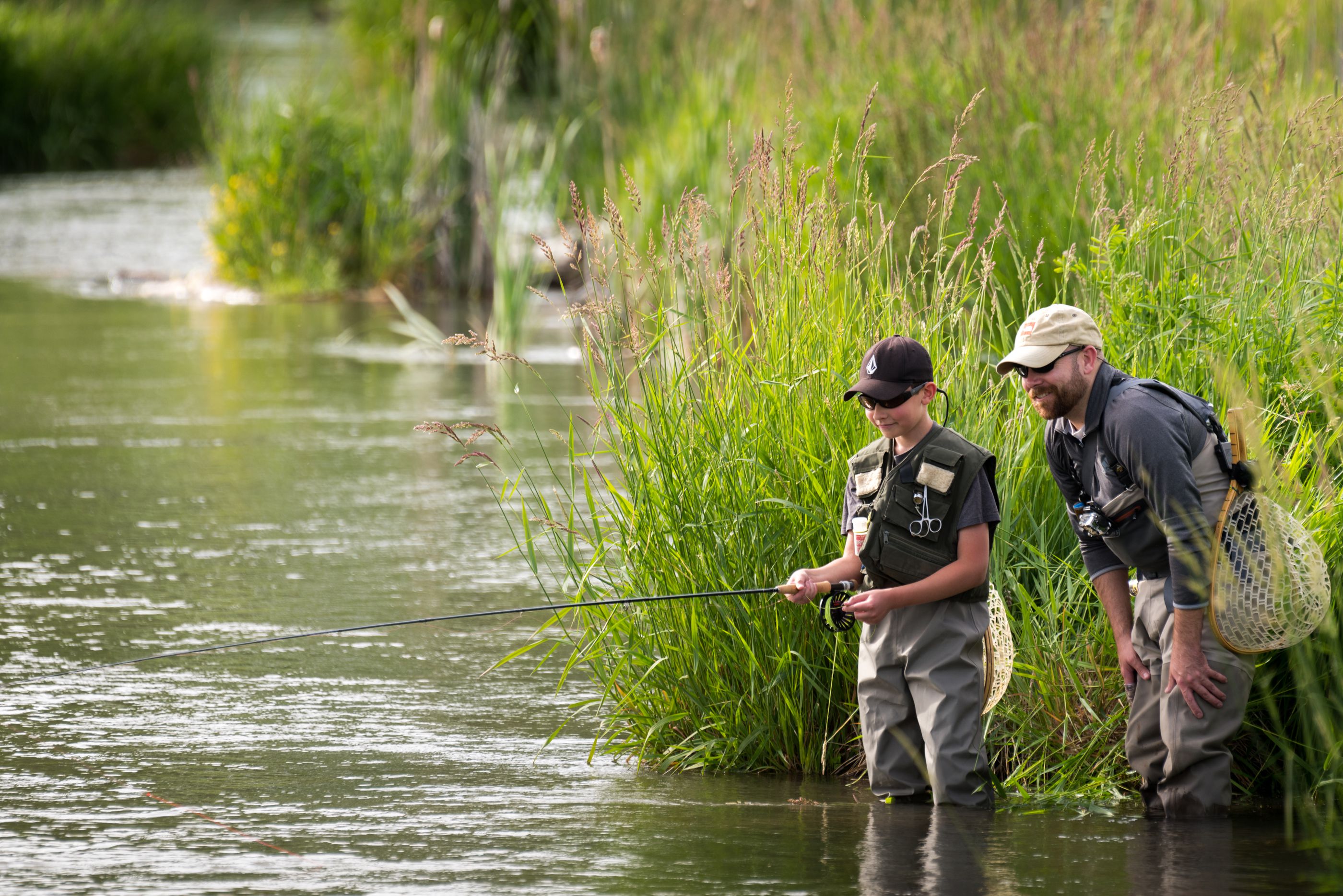
Guests come to fish for a large variety of trout that populate the streams, including rainbow, brown, cutthroat, cutbow, steelhead, tiger, splake, golden, and Kamloops.
In addition to the memberships, the family got into the corporate events business, for companies looking for a different experience when getting away. From events featuring management consultants, multi-national organizations, weddings, and family retreats, Grant White has hosted them all.
As more guests came, they wanted to stay longer and so Grant built cabins to accommodate. While staying over and spending more time, the guests also needed something to eat. So, Grant began serving up his own product to groups that came.
“I became my own biggest customer!” White said.
The opportunity to unwind, fish and relax with friends, and share stories over a great meal has attracted its fair share of high-profile guests as well. In addition to Hall of Fame basketball legend Karl Malone to entertainers like country recording artist Michael Martin Murphy and Jackson Hole’s Bar J Wranglers, White’s Sportsman’s Paradise is a favorite among golfing stars. Grant has hosted the likes of Fuzzy Zoeller, Mark O’Meara, Hale Irwin, Craig Stadler, Johnny Miller, and among the great of them all, Jack Nicklaus.
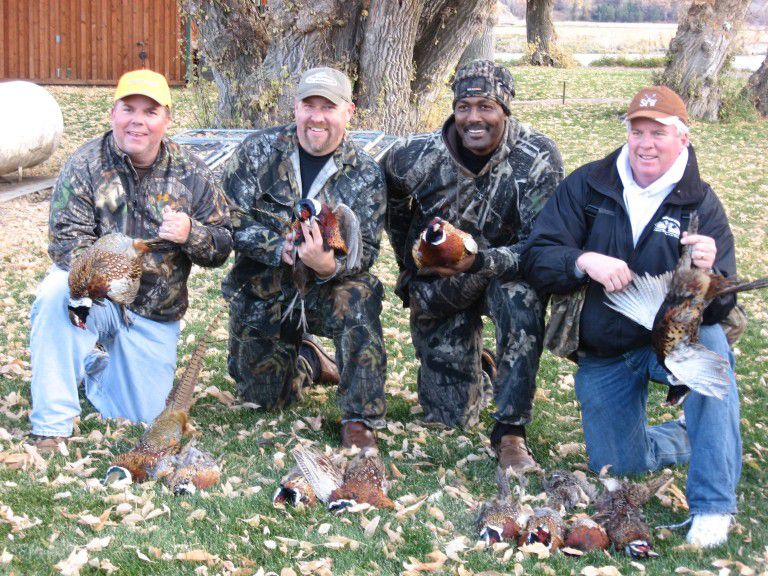
Despite the popularity, local customers have always been welcome, with many coming to spend quiet time on the river or to buy boxes of frozen fish to take home.
Summer is the busiest time at the ranch, and it has been a welcomed relief for White. The return of events and retreats was needed after virtually all of that business had been wiped out due to cancellations from Covid-19.
Grant was a one-man shop for much of the time of expansion but has welcomed family help and plans to eventually have his daughter take over the business. With the added help, Grant has focused on additional priorities for the land and water, including conservation projects and work on the family’s complimentary hunting business. During fall and early winter, guests can come experience hunting for partridge as well as willy ring-necked pheasants. But the fish and his customers’ experiences remain Grant’s top priorities.
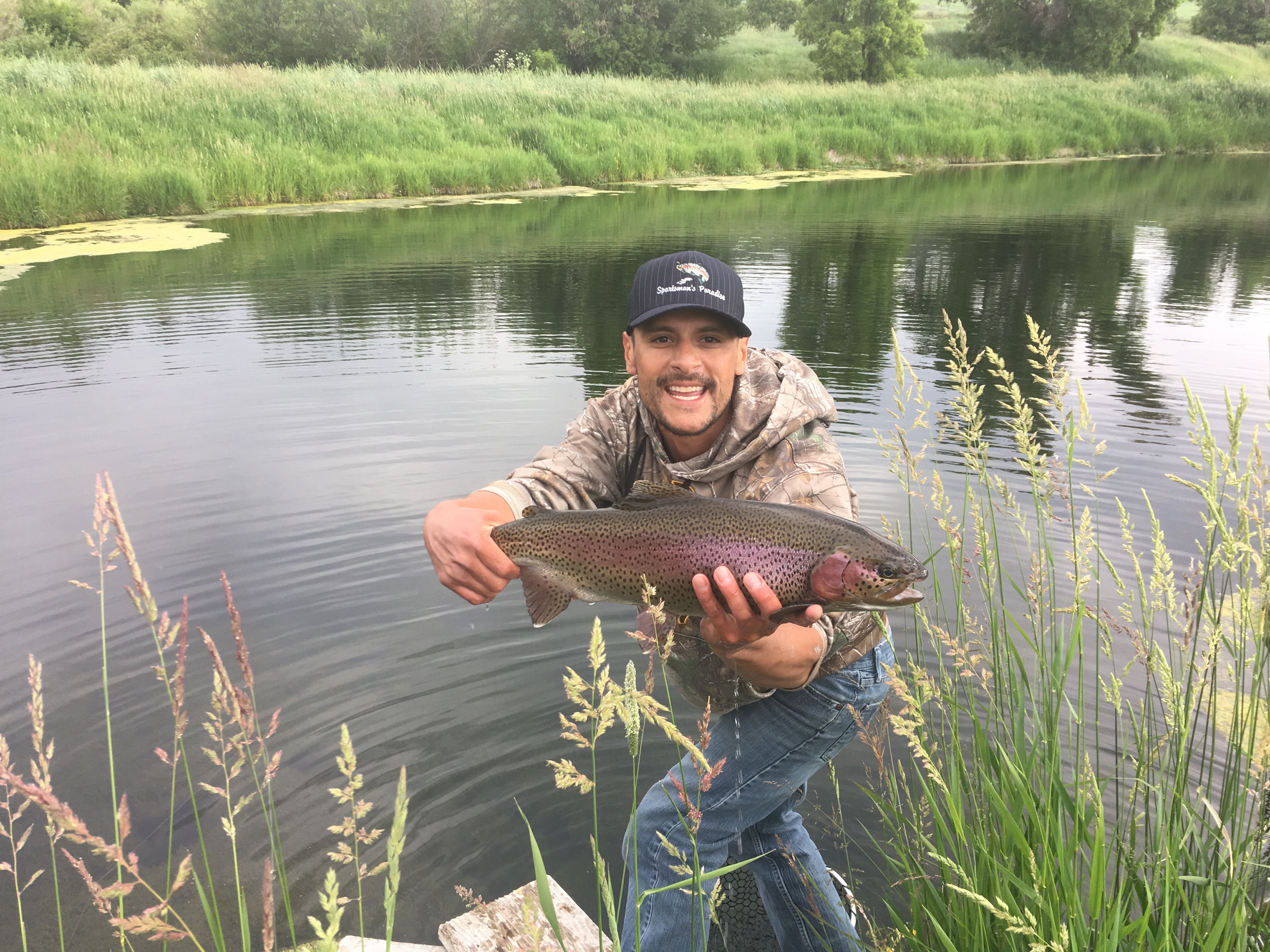
With the guests flocking to the ranch and the streams that crisscross the land teeming with fish, it could be easy to pass judgment and think it was a natural progression of the business. But changing your business is hard. Through the ups and downs, Grant White and his family’s efforts have definitely made this corner of Cache Valley their piece of Paradise.
Want more news on this topic? Farm Bureau members may subscribe for a free email news service, featuring the farm and rural topics that interest them most!
